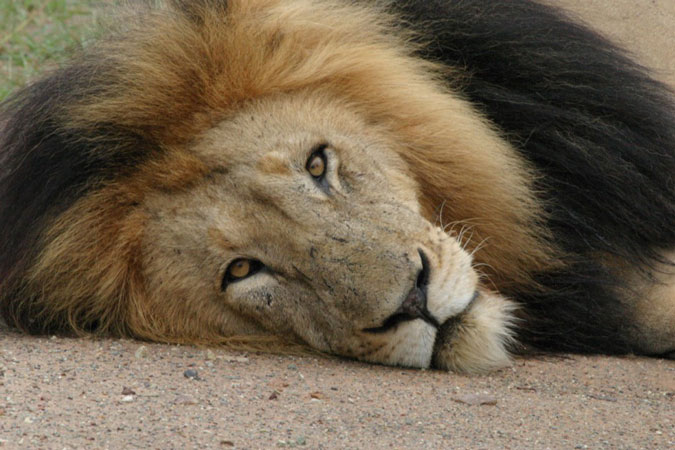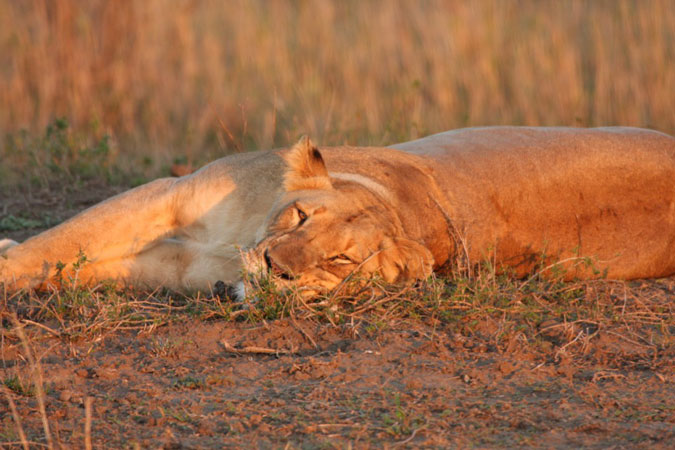CAPE TOWN, South Africa (19 January 2017)—A decision to allow export of 800 captive-bred lion skeletons from South Africa is coming under fire from Humane Society International and the producer of the film Blood Lions. By Blood Lions

Yesterday the South African National Biodiversity Institute, which is the scientific authority to the Department of Environmental Affairs, announced its recommendation to institute an annual export quota of 800 captive-bred lion skeletons, traded in large part for use in traditional medicine to southeast Asian countries like Laos, Vietnam and Thailand. The decision to make this recommendation was made prior to public consultation and without the appropriate scientific basis required under South Africa’s obligations under the Convention on International Trade in Endangered Species of Wild Fauna and Flora. The DEA has now opened a two week comment period – ending on 2 February 2017 – to collect input on the recommended quota.
Humane Society International and Blood Lions strongly urge the DEA to establish a zero export quota, thereby suspending trade in captive-bred lion parts given the absence of scientific evidence that such trade is not detrimental to the survival of wild lions, as required for export under CITES. The captive breeding of lions for the purpose of killing them to supply the bone trade is ethically unacceptable and seriously harms South Africa’s global image.
The decision follows an ongoing controversy about South Africa’s lion breeding industry that promotes cub petting, lion walks, canned lion hunting while practising euthanasia to supply lion bone and other parts.

The South African government will permit lion skeletons to be sourced from the natural deaths of captive-bred lions and also from lions euthanized, as well as remains of lions trophy-hunted by South African and international hunters.
Audrey Delsink, executive director of the Africa office for Humane Society International, said “The Department of Environmental Affair’s decision to support the trade in lion parts is misguided and shameful. Breeding captive lions is not only cruel and goes against the global shift against captive wildlife, but South Africa’s captive-bred lion bone trade is a potential threat to wild lions. Conservation efforts must focus on protecting lions in the wild, and not prop up facilities where they are bred for slaughter and canned hunting. Unless research proves otherwise, caution must prevail and trade in these parts must be completely suspended given South Africa’s commitments under international law.”
Pippa Hankinson, the producer of Blood Lions, said “Blood Lions is deeply concerned by this announcement from the South African government. The quota appears to lack the requisite scientific basis, and there has been no apparent consideration of proper welfare or conservation protocols. South Africa has shown complete disregard for the overwhelming response by key global conservation leaders calling for the ‘termination of captive lion breeding for commercial, non-conservation purposes and the hunting of captive-bred lions and other predators’ at the IUCN World Conservation Congress in September last year. In addition, this shocking industry is already adversely affecting brand South Africa. We urge the public to call for a suspension of trade in captive lions and their bones, and to bring an end to the captive lion breeding and canned hunting industry.”
FACTS:
· The South African government estimates are that there are approximately 6,000 captive African lions in South Africa, bred for various economic purposes. However, other experts reveal the number is likely closer to 8,000.
· The recently appointed Chief Executive Officer of South African Tourism, Mr Sisa Ntshona, has spoken out against the petting of lion cubs and similar exploitative activities.
· A 2015 film titled Blood Lions exposed the true nature of the lion breeding industry in South Africa, revealing poor living conditions, false pretences under which breeders contract volunteers to care for the animals, misleading information provided to tourists about the conservation benefit of lion breeding, and lack of appropriate regulation.
· The African Lion Working Group has stated that “sport hunting of lions that occur in fenced enclosures and are not self-sustaining does not provide any demonstrated positive benefit to wild lion conservation efforts and therefore cannot be claimed to be conservation.”
· At the September 2016 IUCN World Conservation Congress, the world’s top scientists, government representatives, non-profit organizations, and experts adopted motion 009 on terminating the hunting of captive-bred lions and other predators and captive breeding for commercial, non-conservation purposes.
· In November of 2015, the majority of the members of the Professional Hunters’ Association of South Africa passed a motion that “disassociates PHASA with the captive-bred lion industry until such a time that the industry can convince PHASA and the IUCN that the practice is beneficial to lion conservation.”
To comment on this story: Login (or sign up) to our app here - it's a troll-free safe place 🙂.![]()








